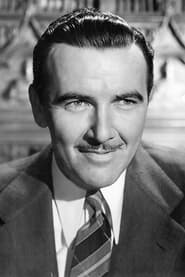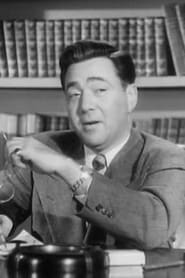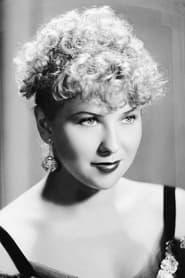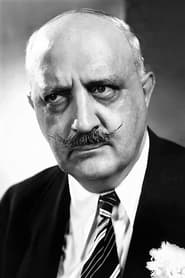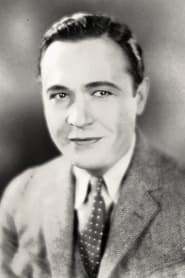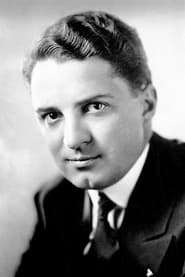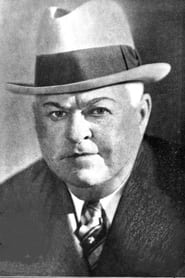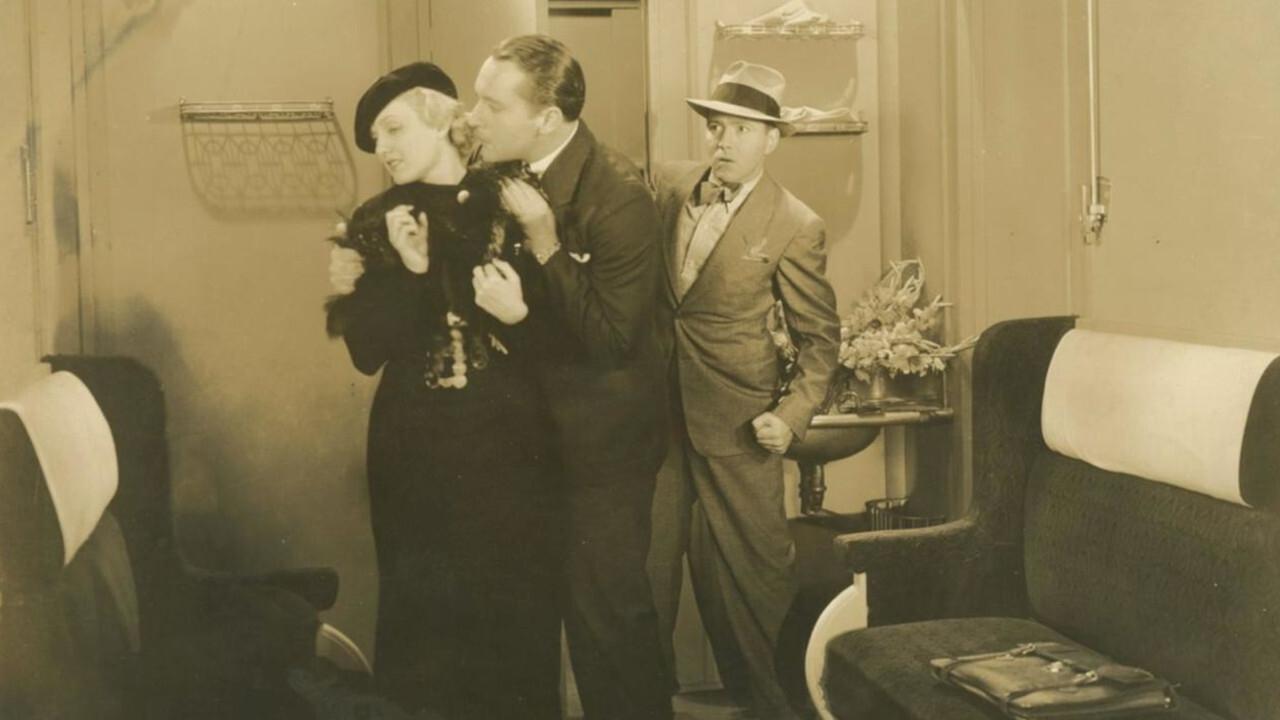
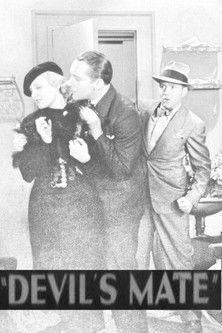
The Devil's Mate(1933)
A convicted murderer has been sentenced to death in the electric chair. He decides to spill the name of the man who hired him, but just before he does he's killed by a poison dart. A police detective and a pretty young newspaper reporter team up to find out the identity of the man behind the killings.
Movie: The Devil's Mate

The Devil's Mate
HomePage
Overview
A convicted murderer has been sentenced to death in the electric chair. He decides to spill the name of the man who hired him, but just before he does he's killed by a poison dart. A police detective and a pretty young newspaper reporter team up to find out the identity of the man behind the killings.
Release Date
1933-08-20
Average
0
Rating:
0.0 startsTagline
Genres
Languages:
EnglishKeywords
Similar Movies
Cameo Kirby(en)
Cameo Kirby is a 1914 American drama silent film directed by Oscar Apfel and written by Clara Beranger and William C. deMille. The film stars Dustin Farnum, Fred Montague, James Neill, Jode Mullally, Winifred Kingston and Dick La Reno. It is based on the play Cameo Kirby by Booth Tarkington and Harry Leon Wilson. The film was released on December 24, 1914, by Paramount Pictures.
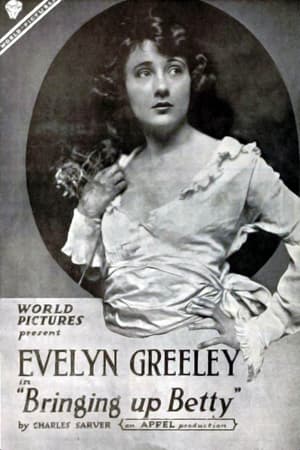 0.0
0.0Bringing Up Betty(en)
During a lawn party at his New York home, steel magnate Theodore Morton claims he is bankrupt as a deterrent to Lord Dormer and the Duke of Medonia, two fortune hunters competing for his niece, Betty. After the suitors depart, unscrupulous Carl Gates is informed by his fiancée, banker's secretary Adele Shelby, that Theodore was lying. Carl pursues Betty, who accepts his proposal with the belief that the marriage will benefit her uncle. During a yachting expedition with Carl, Betty falls overboard and is rescued by architect Tom Waring, who is competing in a race. Tom wins with Betty on board, and a romance develops.
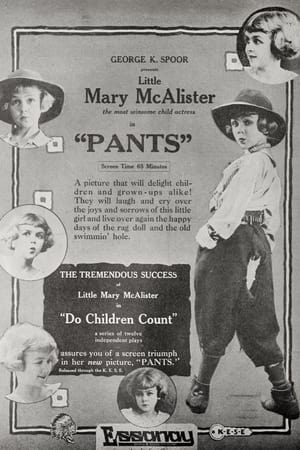 6.0
6.0Pants(en)
Little Betty has a luxurious home, an army of servants and the costliest of toys. But she hasn't what a child wants most of all, other children to play with. The result is that she runs away and joins a group of children from the ghetto district on the beach. In play she exchanges clothing with a little boy. That evening Betty doesn't return home. Her maiden aunt, an over-zealous guardian, is frantic. She notifies the police. The same evening the father of the boy, who has lost his position and is facing starvation, decides to turn burglar. He steals into the home of Betty's father. The household is awakened and the intruder captured.
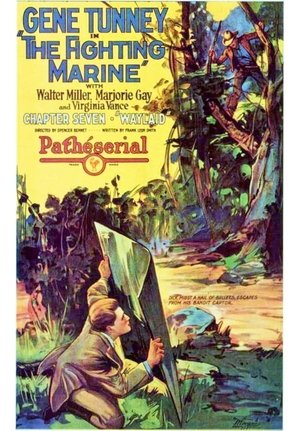 0.0
0.0The Fighting Marine(en)
As a reporter, Dick Farrington is sent to cover an assignment that promises a big story. A lawyer has advertised for an ex-Marine who is a boxer. He makes good beating up a gang of roughnecks picked for the purpose, and secures the mysterious job that is filled with danger. It is to guard the heiress Lady Chatfield, but the hero is told nothing as to the secret in back of it all. Dick poses as Lord Grantmore, wears a monocle, and otherwise acts like a titled Englishman. They proceed to the mining town of Goldbrook, where the heiress is to occupy a mysterious mansion on the occupancy of which hinges a great fortune. The engineer of the mines is deeply interested in thwarting the plans of Lady Chatfield, and with his gang of roughneck miners makes things lively for the pugilist star in a series of fights that are hair raisers.
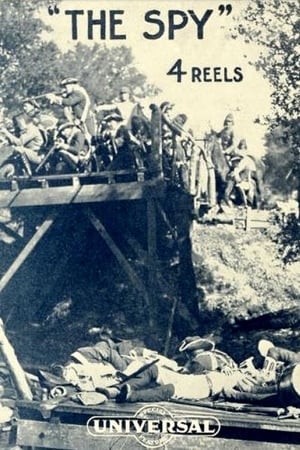 0.0
0.0The Spy(en)
An American agent exchanges places in prison with a condemned British officer and brother of a woman he greatly admires and goes to the gallows.
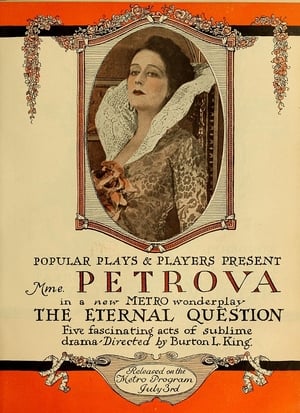 0.0
0.0The Eternal Question(en)
Pierre Felix, a couturier, makes a $25,000 bet with Ralph Courtland that he can take a girl from the streets, dress her appropriately, and within three months have her accepted into society.
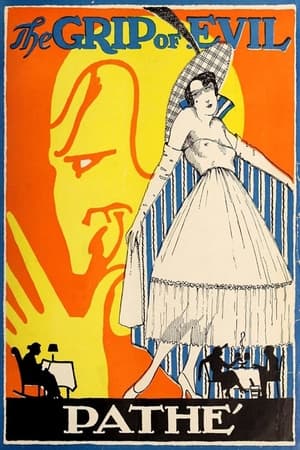 0.0
0.0The Grip of Evil(en)
An English nobleman is banished from home because of his attachment to a girl "not of his class." He marries the girl, comes to America with her, and a child, John Burton, subsequently the hero of each chapter of this serial, is born to them. 14 chapters.
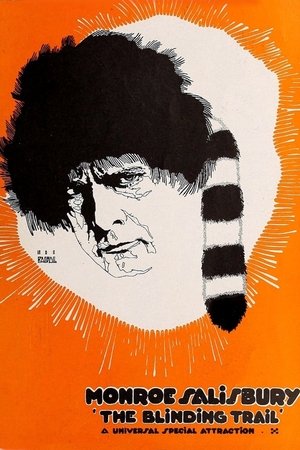 1.0
1.0The Blinding Trail(en)
Flighty Helen Halverson decides that she wants to marry Big Jim McKenzie, the boss of the logging camp her father owns, after he is temporarily blinded after he crashes his toboggan into a tree in order to avoid hitting Helen. She convinces her cousin Adele--who is actually also in love with Jim--to get him to propose. Jim's sight returns and he and Helen marry, but on the day their child is to be born, he goes blind again. Frustrated by being married to a blind man, Helen falls in love with his assistant Jean Du Bray. Complications ensue.
 0.0
0.0Her Body in Bond(en)
The cabaret act of husband-and-wife dancing team Peggy and Joe Blondin is broken up when Joe becomes consumptive and is ordered West to recuperate. Peggy remains in New York to maintain the couple's income but gradually becomes desperate when letters sent her by her husband request more and more money. Joe's letters actually are being intercepted and rewritten by millionaire Harlan Quinn, who has designs on Peggy and wishes to portray Joe's situation as hopeless. After receiving a particularly alarming letter, Peggy consents to sell her honor to Harlan.
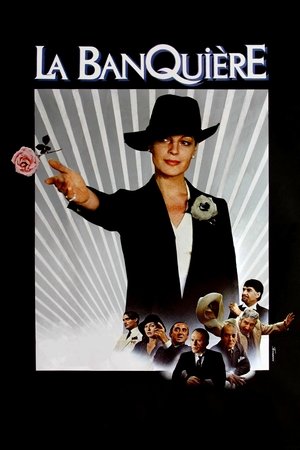 5.4
5.4The Lady Banker(fr)
Ambitious Emma Eckhert successfully makes her way into a world previously reserved for men: that of high finance. She quickly becomes popular with small savers, but leads a scandalous life that will cost her.
Wanted, a Sister(en)
In the college play, Tom and his room-mate, "Bunch," take prominent and successful parts, Tom as the hero and "Bunch" as the heroine, in which he is an excellent female impersonator. The day after the performance, "Bunch" makes an engagement to take a real chorus girl to dinner. Unexpectedly his mother comes to college to visit him and he makes Tom take the girl.
 0.0
0.0The Little Minister(en)
To start a little in advance of our story, Lord Rintoul, of the English nobility, finds a little Gypsy girl three years old, who had been deserted by her parents. Fifteen years later, Gavin Dishart, the Little Minister, receives an appointment, his first, at Thrums, Scotland. This was made possible through the self-sacrifices of his widowed mother, to educate him for the ministry. The community of Thrums is made up of weavers, who work hard, have little and accomplish much. They are ultra-religious and look upon their pastor with such reverence that he is a little lower than the angels. While naturally intelligent, they are grounded in dogma and intolerance. Just after the Little Minister takes charge of the "Auld Licht Kirk" and the Manse, the weavers resent a reduction, by the manufacturers, in their pay and a strike is declared.
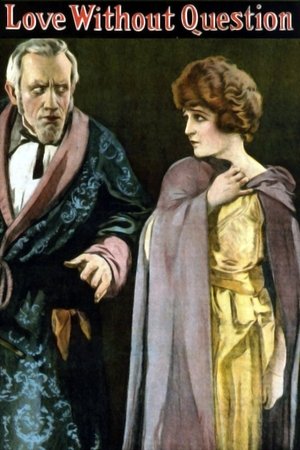 0.0
0.0Love Without Question(en)
Old Silas Blackburn, a wealthy recluse, lives alone with his butler and his ward Katherine. One night, Katherine discovers Silas murdered in the room where three generations of Blackburns have mysteriously died. Silas' grandson Robert, whom Katherine loves, comes to visit the next day, suffering from amnesia.
 6.6
6.6Doctor Who: The Reign of Terror(en)
The TARDIS materialises not far from Paris in 1794 — one of the bloodiest years following the French Revolution of 1789. The travellers become involved with an escape chain rescuing prisoners from the guillotine and get caught up in the machinations of an English undercover spy, James Stirling — alias Lemaitre, governor of the Conciergerie prison.
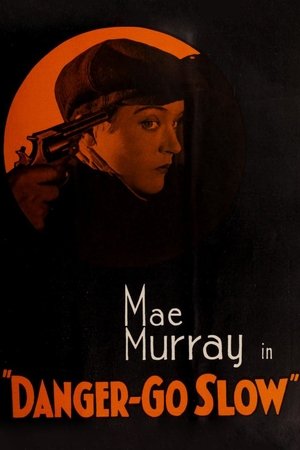 0.0
0.0Danger, Go Slow(en)
Muggsy Mulane, a waif who wears boy's clothing, jumps a freight train to the country after Jimmy "the Eel," the leader of the gang of crooks with whom she works, is arrested. In the village of Cottonville, Muggsy befriends Aunt Sarah, whom she later discovers is Jimmy's mother. When Muggsy learns that the greedy Judge Cotton, who holds the mortgage on Aunt Sarah's property, is planning to foreclose, she threatens to blackmail him, and he relents.
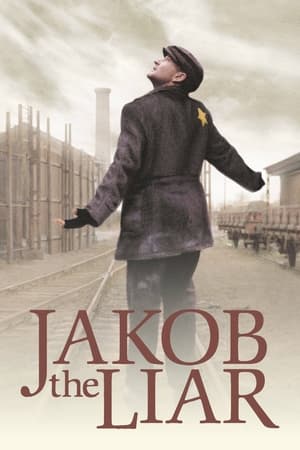 6.7
6.7Jakob the Liar(en)
In 1944 Poland, a Jewish shop keeper named Jakob is summoned to ghetto headquarters after being caught out after curfew. While waiting for the German Kommondant, Jakob overhears a German radio broadcast about Russian troop movements. Returned to the ghetto, the shopkeeper shares his information with a friend and then rumors fly that there is a secret radio within the ghetto.
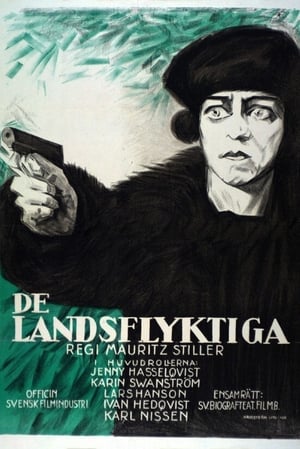 0.0
0.0In Self Defence(sv)
A wealthy Russian family is faced with change and challenges as events unfold during the First World War.
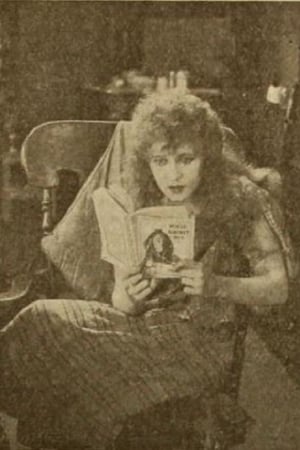 0.0
0.0Susan's Gentleman(en)
Nancy Croyden, born of British nobility, languishes in the slums of New York after she elopes with Terrence Flynn, a groom on her father's estate. Nancy dies there, leaving behind a daughter, Susan Flynn, who grows to adulthood in the Bowery. In search of her family, Susan returns to England where she befriends Sir Bevis Neville, an English peer in disguise.
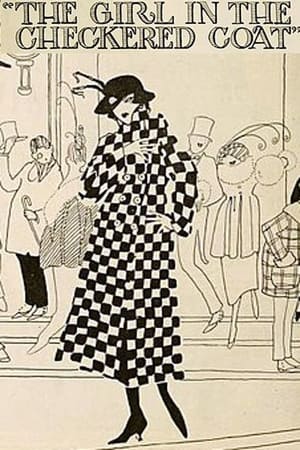 0.0
0.0The Girl in the Checkered Coat(en)
When Mary and Fannie Graham, daughters of a good mother but a father with criminal instincts, are left motherless, Mary flees from her unhappy surroundings while Fannie, inheriting her father's disposition, remains and is raised as a thief.

